Anxiety Disorders
Anxiety is a normal emotion that everyone experiences from time to time. But for some, anxiety can become overwhelming and disabling, leading to anxiety disorders. Generalized anxiety disorder is one of the most common mental health conditions in the United States, affecting 40 million adults – 18% of the population – every year.
Generalized anxiety disorders cause people to feel excessive fear or worry which can interfere with daily activities such as going to work or school, socializing with friends and family, or even just leaving the house. Symptoms may include difficulty sleeping, feeling on edge or restless all day long, muscle tension, fatigue due to lack of sleep, and restlessness due to hyperarousal.
People who suffer from a generalized anxiety disorder often have trouble concentrating and making decisions because their minds are so preoccupied with worrying about potential disaster scenarios that never actually happen.
The good news is an anxiety disorder is very treatable; however, it’s important for those suffering from anxiety disorder symptoms to know how to recognize them so they can get help sooner rather than later before things spiral out of control. In this post we discuss what anxiety disorder is, its different types and symptoms, as well as treatment options available for managing anxiety effectively.
What is anxiety?
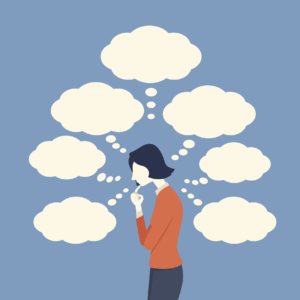
Anxiety is a mental illness and it can last for different periods of time. Anxiety disorders involve intense episodes of fear or worry that occur without rational cause and affect the sufferer’s life in some significant way. These feelings are often accompanied by physical symptoms such as increased heart rate, sweating, trembling, and difficulty breathing. In some cases anxiety may be acute – lasting only a few minutes or hours; however in more serious circumstances anxiety may persist for days, weeks, or even months.
Treatment might include medications as well as cognitive-behavioral therapy to reduce anxiety symptoms and help the person develop healthier approaches to dealing with stressors. It is important for those suffering from anxiety disorder symptoms to know how to recognize them so they can get help sooner rather than later before things spiral out of control.
The good news is at the end of this blog post we are going to tell you how you can take control of your anxiety without any drugs and within 8 weeks or less.
Signs and Symptoms
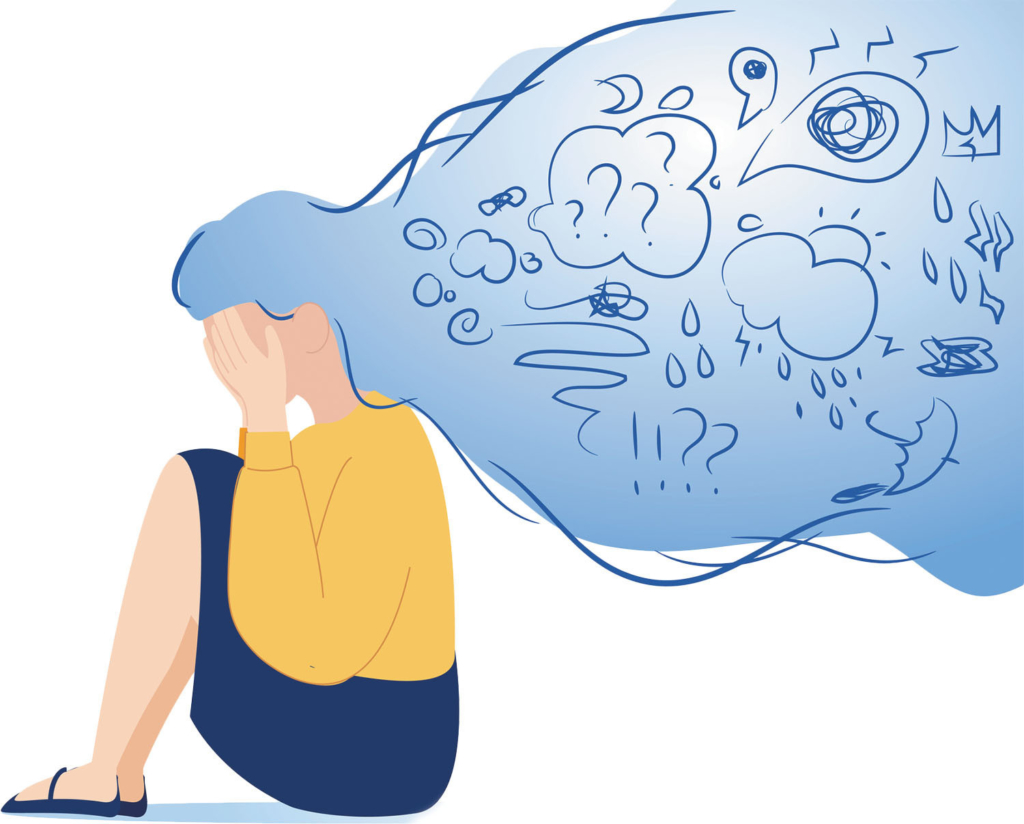
An anxiety disorder can manifest in many different ways, and it is important to be aware of the signs and symptoms associated with anxiety so that you can seek help if needed. The most common symptoms of anxiety include feelings of fear or worry, difficulty sleeping, restlessness, muscle tension, fatigue due to lack of sleep, and hyper-arousal. Other physical manifestations may also occur, such as increased heart rate, sweating, and trembling. It is important to note that these symptoms are often accompanied by irrational fears, which could lead to further anxiety-related issues if left unchecked.
Different types of anxiety disorders
Panic Disorder
Panic Disorder is an anxiety disorder characterized by recurring anxiety attacks or panic attacks. These anxiety attacks are sudden, intense episodes of fear or dread that can last from minutes to hours and include physical symptoms such as chest pain, heart palpitations, shortness of breath, dizziness, and sweating. People with Panic Disorder experience these panic attacks repeatedly and often worry about having another one in the future which can lead to further anxiety-related issues.
Panic disorder is a type of anxiety disorder that often causes feelings of extreme anxiety or fear that can lead to panic attacks. These anxiety attacks are usually accompanied by physical symptoms such as chest pain, heart palpitations, shortness of breath, dizziness, and sweating. People with Panic Disorder suffer from recurrent anxiety attacks which can be triggered by certain triggers such as certain places, people, or situations. It is important for those suffering from anxiety disorder symptoms to know how to recognize them so they can get help sooner rather than later before things spiral out of control.
Agoraphobia
Agoraphobia is an anxiety disorder characterized by a fear of being in certain situations or places where escape is difficult. These situations and/or places could include being outside the house, crowded spaces, public transportation, bridges etc. People with agoraphobia often feel anxiety when they find themselves in these situations as they worry about having a panic attack in public or not being able to get away from the anxiety-causing environment fast enough.
Social Anxiety Disorder
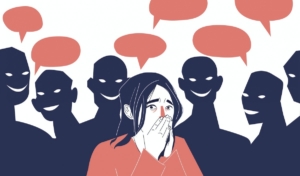
Social Anxiety Disorder is an anxiety disorder characterized by a fear of being judged or embarrassed in social situations. People with Social Anxiety Disorder often feel anxiety when they find themselves in social settings as they worry about not knowing what to say, making a fool of themselves, being judged negatively etc. This anxiety can lead to further anxiety-related issues if left unchecked.
Generalized anxiety disorder (GAD)
Generalized anxiety disorder (GAD) is an anxiety disorder characterized by persistent anxiety and worry with no specific cause. People with GAD often feel anxiety even when there is no rational reason to do so and this can lead to further anxiety-related issues if left unchecked.
Phobia-related disorders
Phobia-related anxiety disorders include specific phobias such as a fear of heights, a fear of animals, etc. People with these anxiety disorders often experience intense anxiety when they find themselves in the presence of the thing or situation that causes their anxiety. This anxiety can lead to further anxiety-related issues if left unchecked.
Obsessive-compulsive disorder (OCD)
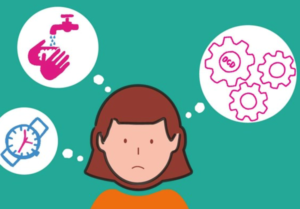
Obsessive-compulsive disorder (OCD) is an anxiety disorder characterized by intrusive thoughts and compulsions. People with OCD often experience anxiety when they have intrusive thoughts or have to perform certain compulsions to relieve their anxiety. This anxiety can lead to further anxiety-related issues if left unchecked.
Selective mutism
Selective mutism is an anxiety disorder characterized by a person’s inability to speak in certain situations. People with selective mutism often feel anxiety when they find themselves in these situations as they worry about not being able to speak or being judged negatively for not speaking. This anxiety can lead to further anxiety-related issues if left unchecked.
Specific phobias
Specific phobias are anxiety disorders characterized by an irrational fear of a certain thing or situation. People with specific phobias often experience anxiety when they find themselves in the presence of the thing or situation that causes their anxiety. This anxiety can lead to further anxiety-related issues if left unchecked.
Separation anxiety disorder
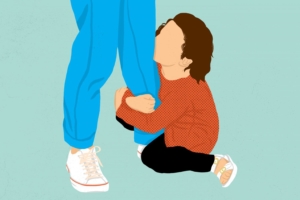
Separation anxiety disorder is an anxiety disorder characterized by excessive worry and distress related to being away from home or loved ones. People with separation anxiety disorder often feel anxiety when they have to be apart from family or close friends as they worry about something bad happening while they’re away. This anxiety can lead to further anxiety-related issues if left unchecked.
Post-traumatic stress disorder (PTSD)
Post-traumatic stress disorder (PTSD) is an anxiety disorder characterized by anxiety and other emotional disturbances that arise due to a traumatic event in the past. People with PTSD often experience anxiety when they are reminded of the traumatic event or are exposed to certain triggers associated with it. This anxiety can lead to further anxiety-related issues if left unchecked.
These are just some examples of anxiety disorders, but there are many more out there. If you think you might have an anxiety disorder, it is important to seek professional help as soon as possible so that you can get the proper treatment for your condition before it becomes worse. Remember, anxiety is treatable and recovery is possible!
Risk Factors
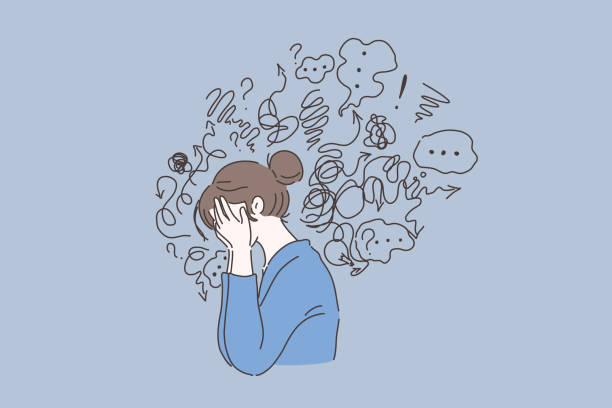
There are many risk factors for anxiety disorders such as genetics, environment, and trauma. It is important to be aware of these risk factors so that you can take steps to reduce your chances of developing anxiety in the future.
Anxiety can be managed in a variety of ways depending on the severity and type of anxiety disorder. Some helpful tips for managing anxiety include seeking professional help, engaging in relaxation techniques such as mindfulness and meditation, getting enough sleep and exercise, eating a balanced diet, avoiding substances such as alcohol and caffeine which can worsen anxiety symptoms, spending time with supportive people who understand your condition, and setting realistic goals.
When to see a doctor
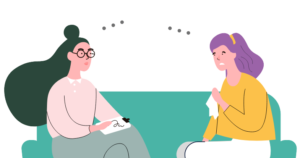
It is important to seek professional help if anxiety is interfering with your daily life or if you are having difficulty managing it on your own. A doctor or mental health specialist can provide the necessary treatment and support to help you manage anxiety in a healthy way.
Anxiety disorders are serious conditions that should not be taken lightly, but they are entirely treatable. With the right treatments and strategies, people with anxiety disorders can learn to cope with their condition and lead productive and fulfilling lives. If you think you may have an anxiety disorder, don’t hesitate to reach out for help – recovery is possible!
Treatments and Therapies For Anxiety
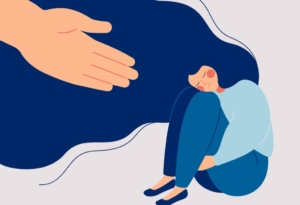
When it comes to anxiety disorders, there are many different treatments and therapies available. Depending on the type of anxiety disorder and its severity, a combination of therapy, medication, lifestyle changes and relaxation techniques can be used to help manage anxiety symptoms.
Cognitive-behavioral therapy (CBT)
Cognitive-behavioral therapy (CBT) is a popular form of psychotherapy that has been found to be effective in treating anxiety disorders. This type of therapy focuses on changing negative or unhelpful thought patterns and behaviors through education and skill-building exercises. Other forms of therapy such as dialectical behavior therapy (DBT) may also be beneficial for those with anxiety disorders.
Psychotherapy
Psychotherapy is another popular form of anxiety treatment. This type of therapy focuses on exploring and understanding the underlying causes of anxiety, as well as developing strategies to manage anxiety symptoms.
Medication
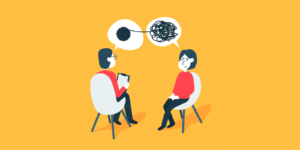
In some cases, medication may be recommended in addition to therapy or lifestyle changes. Common medications used for anxiety disorders include antidepressants, benzodiazepines, and beta-blockers. It is important to discuss any potential risks and side effects with your doctor before starting a new medication.
Support Groups

Support groups are a great way to connect with others who may be struggling with similar anxiety issues. These groups provide moral support, positive reinforcement, and helpful tips for managing anxiety.
Online telemedicine services
Online psychiatry services are another convenient way to get help for anxiety. Services such as Telemedicine can provide diagnosis and treatment from the comfort of your home. This can be a great solution for those with anxiety disorders who may not have access to traditional mental health services.
Online telemedicine services have become increasingly popular in recent years as they provide a convenient way to seek anxiety treatment without leaving the comfort of one’s home. Telemedicine can provide diagnosis and treatment, as well as access to many other mental health resources and support.
Telemedicine is similar to traditional face-to-face psychiatry appointments, except that it takes place over phone or video calls. During a telepsychiatry appointment, patients discuss their anxiety symptoms with a mental health professional and receive guidance on managing anxiety. Treatment plans may include anxiety therapy and medication, lifestyle changes such as exercise and diet, relaxation techniques such as mindfulness and meditation, self-care practices such as positive self-talk, setting realistic goals, identifying triggers for anxiety and stressors in the environment, and utilizing coping skills when needed.

In addition to providing treatment for anxiety disorders, online telemedecine services may also offer counseling services for couples or families affected by anxiety issues. This type of therapy can help family members better understand each other’s anxiety experiences in order to build stronger relationships and promote healing.
Moreover, online psychiatry services also offer an accessible platform where people with anxiety can connect with one another through online support groups and forums. These groups provide a safe space to share stories and tips on managing anxiety while receiving emotional support from others who understand what you are going through.
Overall, online telemedecine services are an invaluable resource for those struggling with anxiety disorders. Not only do these services provide access to quality mental health care from the privacy of your own home but they also allow individuals to connect with one another in meaningful ways which aid in their recovery journey.
At-home anxiety treatments
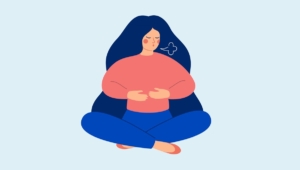
At-home anxiety treatments can be an effective option for those who may not have access to traditional mental health services or are looking for a more convenient way to manage their anxiety. There are many methods of anxiety management that can be done from the comfort of one’s own home, such as mindfulness, guided meditation, yoga and other relaxation techniques. In addition to these methods, there are numerous products designed specifically for anxiety treatment which can be used at home to help reduce anxiety symptoms.
Lief offers an innovative wearable device that uses combination of cognitive behavior therapy and neuroscience with real-time biofeedback to detect and reduce anxiety in just minutes. The device works by tracking your body’s physiological responses in reaction to stress (i.e., heart rate & heart rate variability) as well as providing personalized feedback through visual cues in the app. This feedback helps you become aware of your physiological reactions and develop anxiety-reducing techniques, such as controlled breathing or slow muscle relaxation exercises.
In addition to the Lief wearable device, other products offered by the company include customizable anxiety treatment plans as well as a digital toolkit with resources to help people cope with anxiety on their own terms from the privacy of their own homes. The digital toolkit includes videos with meditation and relaxation practices, educational materials about anxiety disorders, tools for identifying triggers, monitoring progress over time, building resilience and developing communication strategies when it comes to discussing anxiety issues with family members or friends. All these resources are tailored towards each individual’s specific needs making them particularly useful when dealing with anxiety at home.
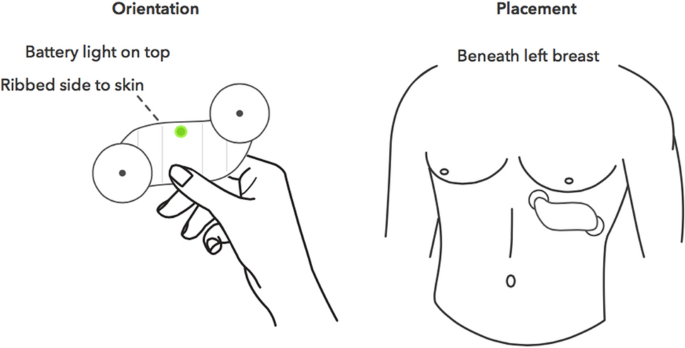
At-home anxiety treatments can provide individuals dealing with anxiety disorders a convenient way to manage their symptoms while still having access to quality mental health care services in the comfort of their own homes. With the help of online telemedicine services such as Lief, individuals can receive personalized support tailored specifically towards their needs without having to leave their homes or take time off from work or school commitments which may otherwise be difficult due to severe anxiety symptoms. Moreover, using at-home anxiety treatments allows individuals more control over where and when they receive treatment making it possible for them to seek help even in times when traditional mental health services may not be available or accessible due to financial constraints or geographical location restrictions .
Stress Management Techniques
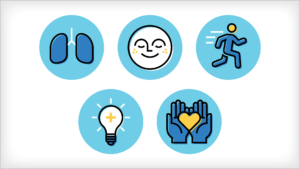
There are many stress management techniques that can help reduce anxiety symptoms, such as deep breathing exercises, progressive muscle relaxation, guided imagery, yoga and mindfulness meditation. Practicing these activities regularly can help to build resilience and improve your overall mental health.
Lifestyle Changes

Making healthy lifestyle changes can also help reduce anxiety symptoms. Eating a balanced diet, exercising regularly, getting enough sleep, limiting alcohol consumption, avoiding caffeine and other stimulants, and making time for relaxation are all great ways to help manage anxiety.
Prevention
Preventative measures can also be taken to reduce anxiety. Avoiding or managing triggers, such as stressful situations or environments, engaging in physical activities and practicing stress management techniques are all great ways to prevent anxiety from becoming overwhelming.
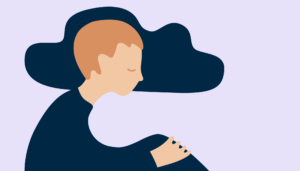
Overall, anxiety disorders can be challenging to manage on your own. Fortunately, there are many effective tools and techniques that can help reduce anxiety symptoms such as cognitive behavior therapy, biofeedback devices like Lief Therapeutics, stress management techniques, lifestyle changes and preventive measures. With the right combination of treatments and support from mental health professionals or online telemedicine services such as Lief Therapeutics, individuals dealing with anxiety disorders can learn how to better cope with their condition in order to improve their overall quality of life.
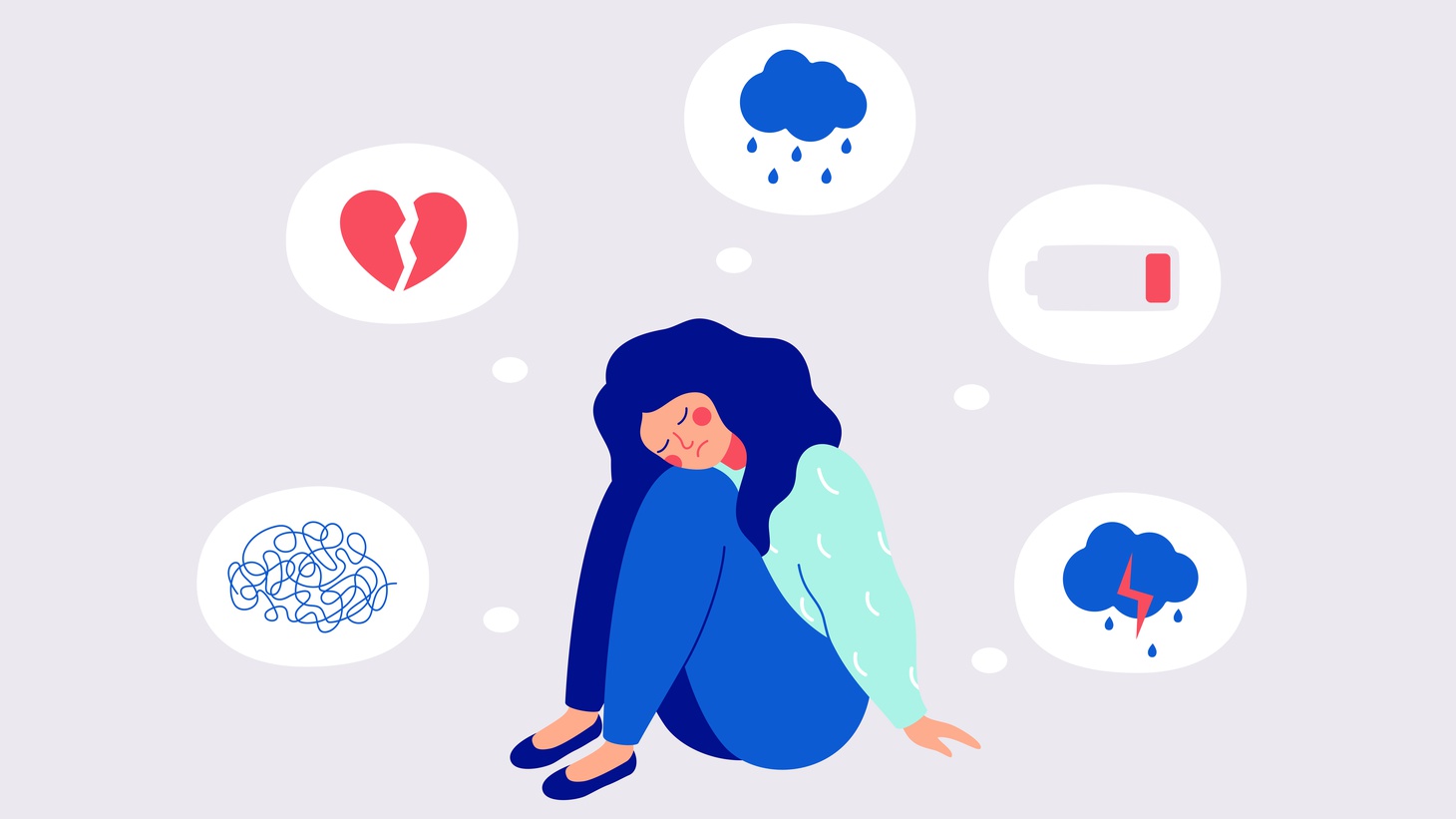

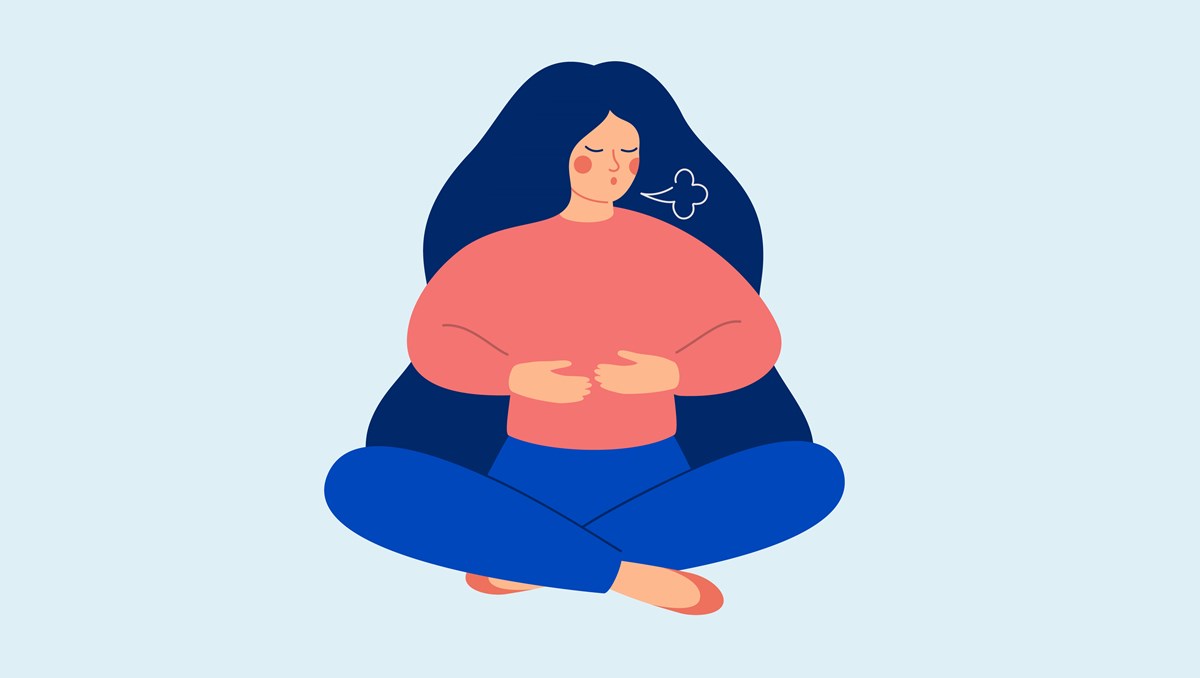
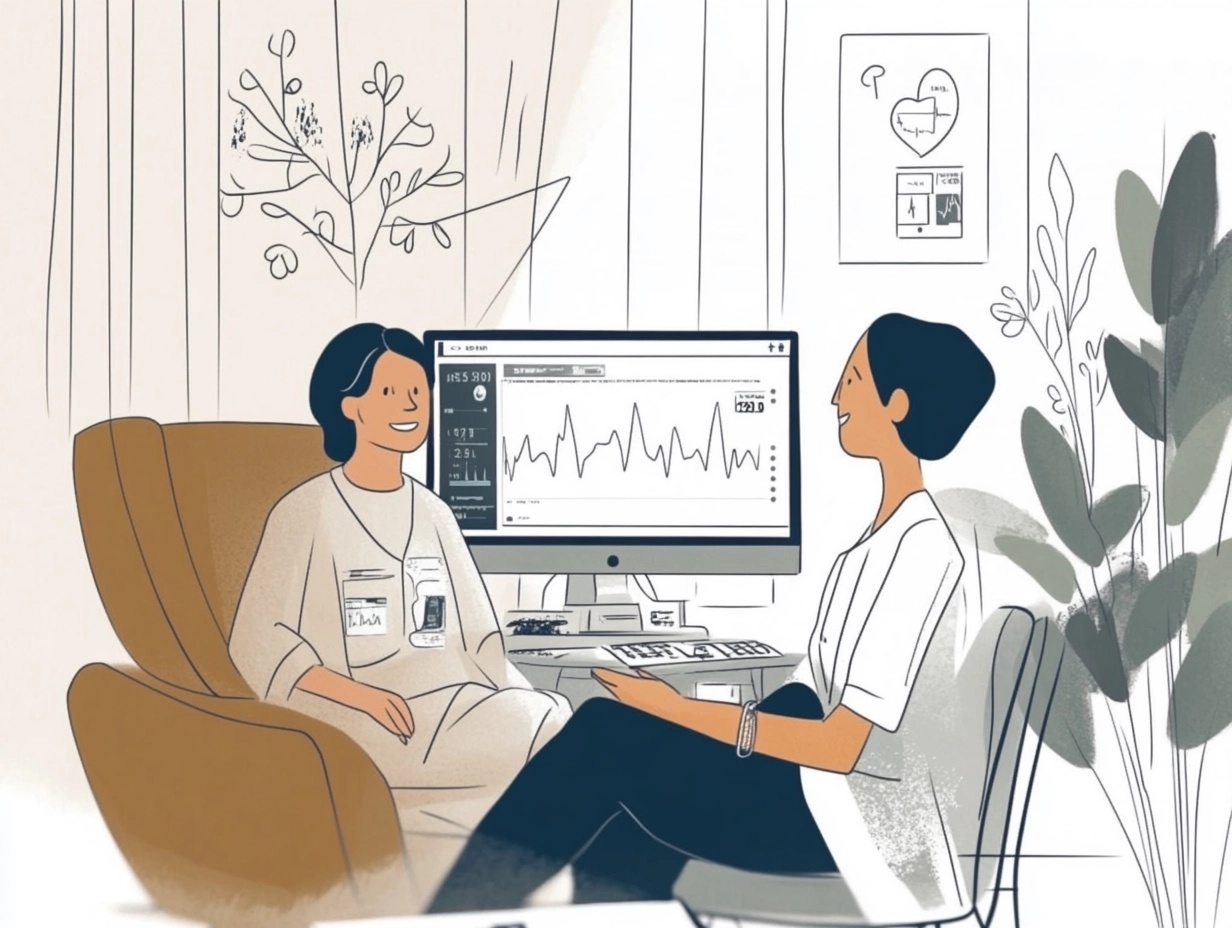

Leave a Reply
You must be logged in to post a comment.